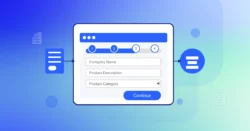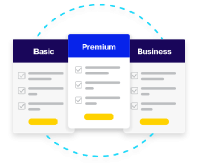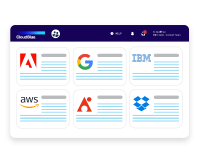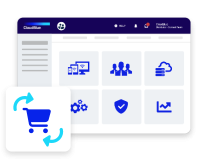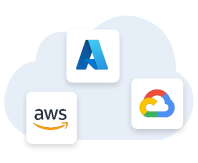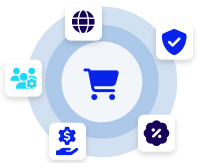B2B SaaS, or Business-to-Business Software as a Service, refers to cloud-based software solutions specifically designed to meet the needs of businesses rather than individual consumers. These solutions are hosted on the vendor’s servers and accessed via the internet, providing businesses with scalable and flexible tools without the need for substantial upfront investment in hardware or infrastructure.
What is B2B SaaS?
B2B SaaS companies develop software that is marketed and sold to other businesses. These products are designed to solve specific business problems, improve operational efficiency, and support various functions such as customer relationship management (CRM), enterprise resource planning (ERP), human resources management, and more. Unlike traditional software, enterprise B2B SaaS solutions are delivered over the internet, allowing for real-time updates, seamless integration, and remote accessibility.
Key Features of B2B SaaS
- Scalability: B2B SaaS solutions can easily scale with the growth of a business, accommodating increased usage and additional users without significant changes to the underlying infrastructure.
- Cost-Effectiveness: By offering subscription-based pricing models, B2B SaaS eliminates the need for large upfront investments, making it more accessible for businesses of all sizes.
- Accessibility: These solutions are accessible from any location with an internet connection, enabling remote work and collaboration.
- Automatic Updates: Vendors handle maintenance and updates, ensuring that businesses always have access to the latest features and security enhancements.
- Integration: B2B SaaS products often integrate with other B2B software systems, creating a cohesive and efficient business ecosystem.
Importance of B2B SaaS in the Business World
Both SaaS and B2B SaaS play a critical role in the modern business landscape by providing tools that enhance productivity, streamline operations, and support data-driven decision-making. The flexibility and scalability of SaaS solutions enable businesses to adapt quickly to changing market conditions and technological advancements.
Examples of B2B SaaS Companies
Several leading companies in the B2B SaaS space include:
- Salesforce: A pioneer in CRM software, Salesforce provides comprehensive solutions for sales, service, marketing, and more.
- Slack: A collaboration platform that facilitates team communication and project management.
- HubSpot: Offers marketing, sales, and service software to help businesses grow and manage customer relationships.
- Zendesk: Provides customer service and engagement software to improve customer support and satisfaction.
B2B SaaS Business Model
The B2B SaaS business model typically involves subscription-based pricing, where customers pay a recurring fee (monthly or annually) to access the software. This model ensures a steady revenue stream for vendors and makes budgeting predictable for customers. Additionally, B2B SaaS companies offer tiered pricing plans, allowing businesses to choose a package that fits their specific needs and budget.
Benefits of B2B SaaS
- Improved Efficiency: B2B SaaS solutions automate and streamline various business processes, freeing up time and resources for other critical tasks.
- Enhanced Collaboration: With cloud-based access, teams can collaborate more effectively, regardless of their physical location.
- Data Security: Reputable B2B SaaS vendors invest in robust security measures to protect business data.
- Customization: Many B2B SaaS products offer customizable features and integrations, enhancing the overall SaaS experience by enabling businesses to tailor the software to their unique requirements.




